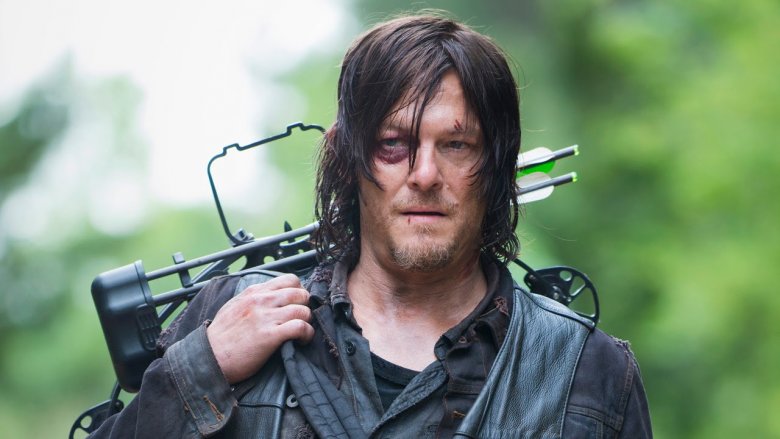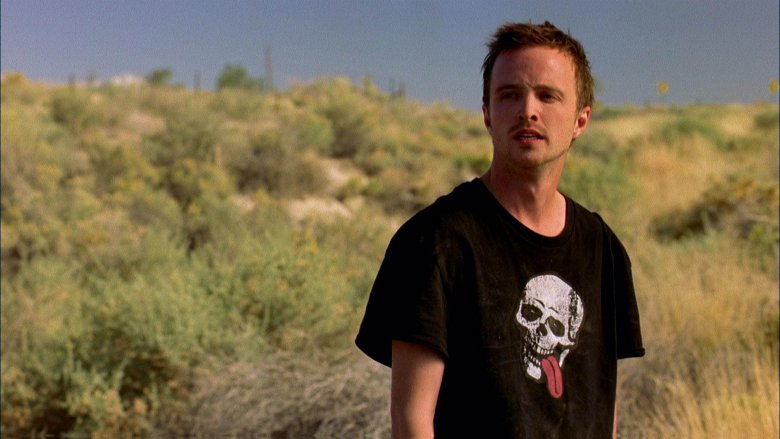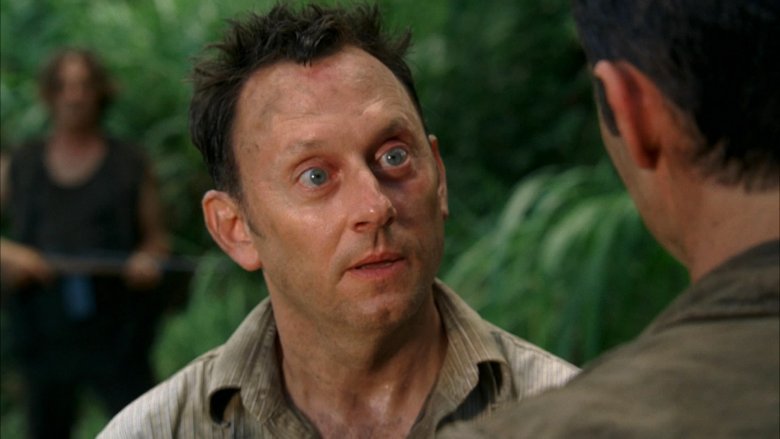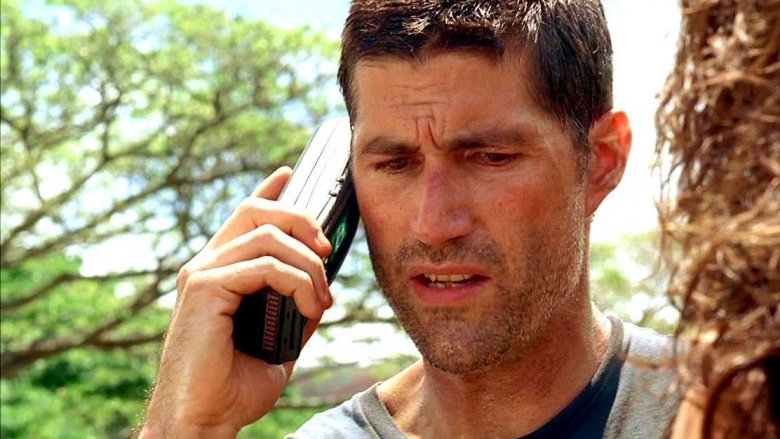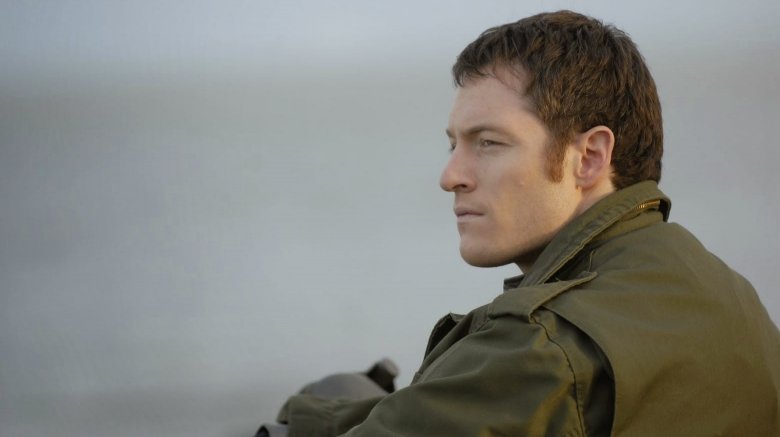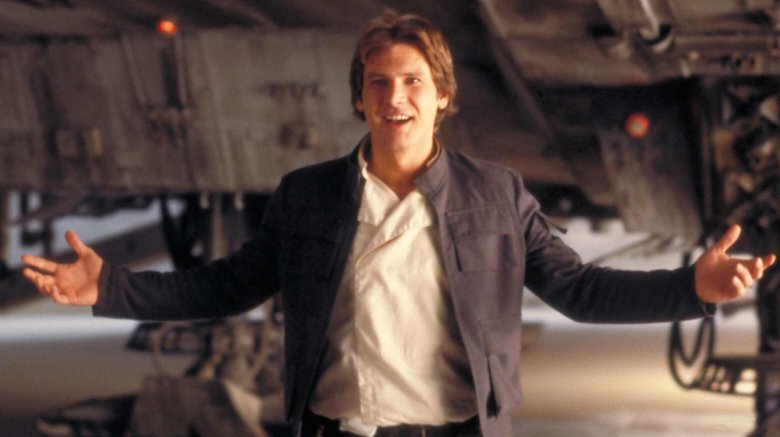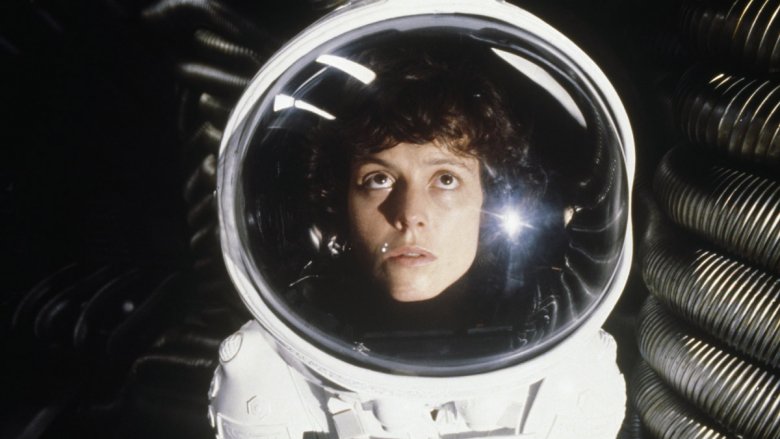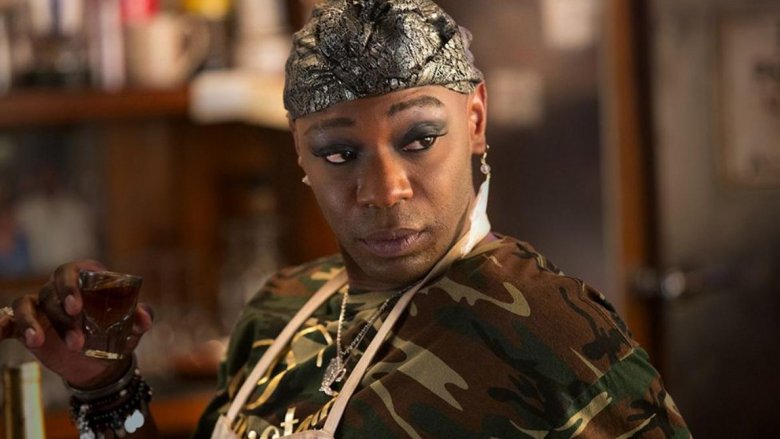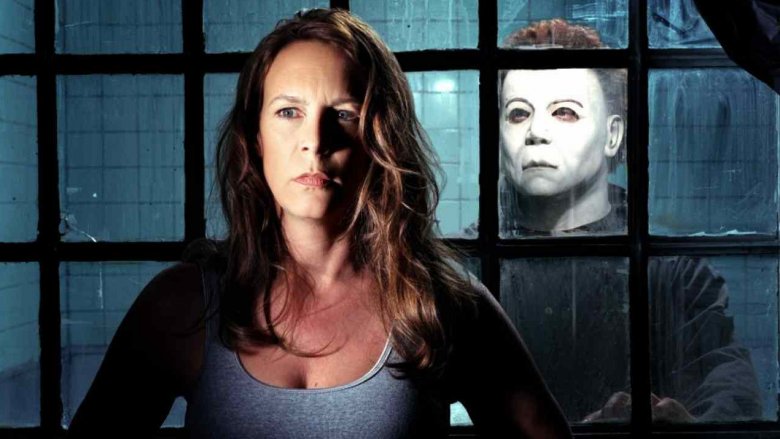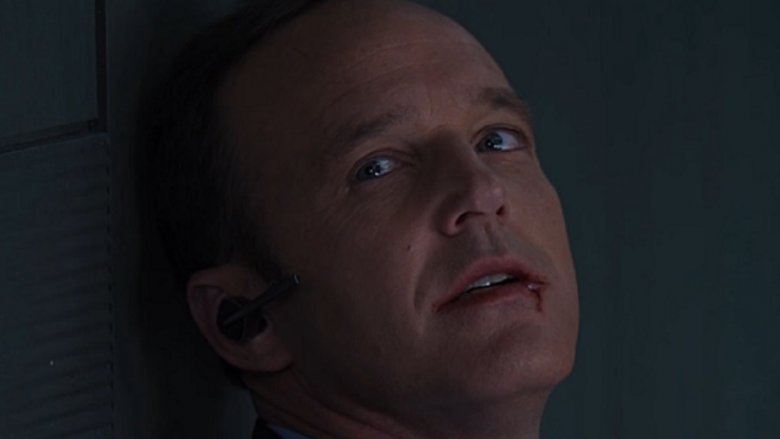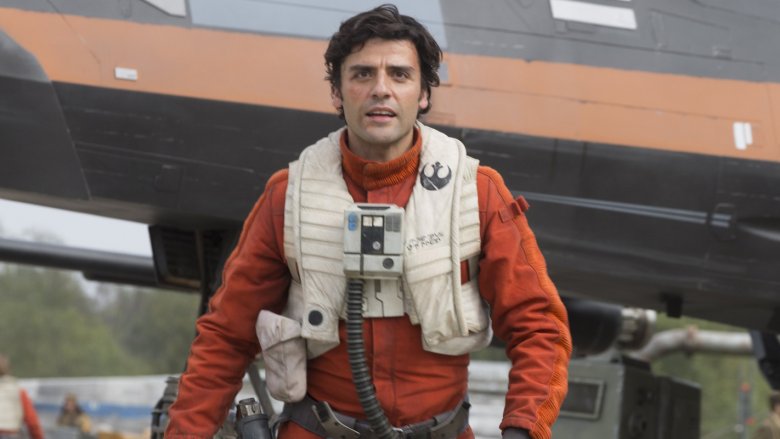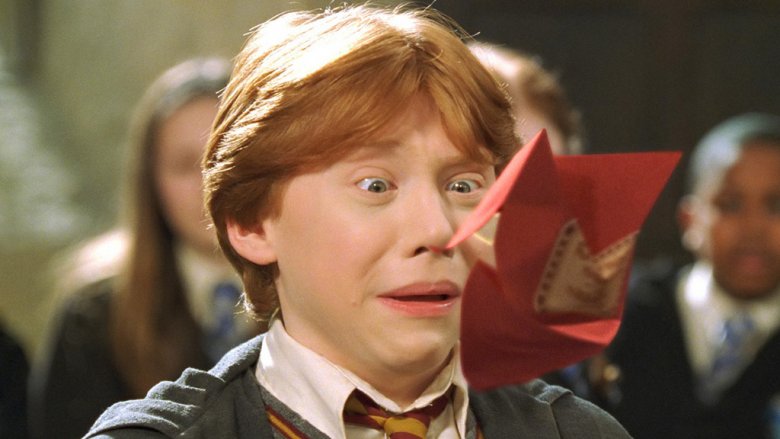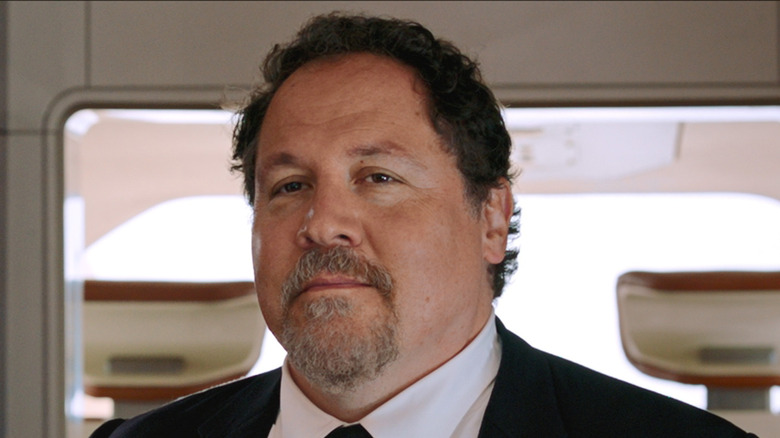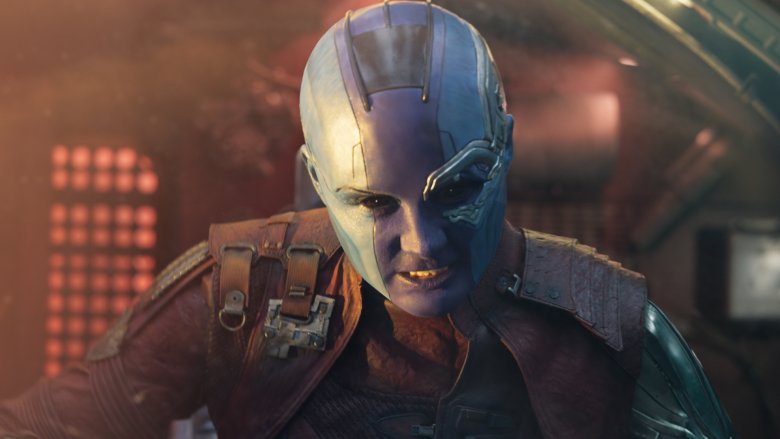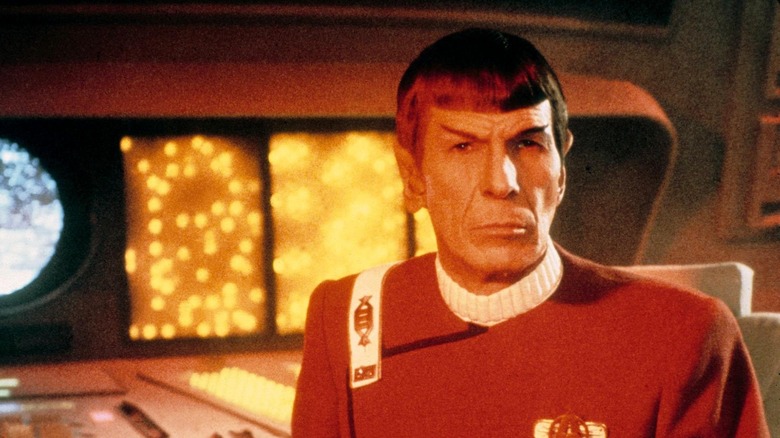Movie & TV Fan Favorites Who Were Originally Supposed To Die
Killing off a fan favorite character is a great way for a writer to raise dramatic stakes without working too hard, and audiences will generally let them get away with it. Game of Thrones is one of the most popular shows on television despite being absolutely notorious for offing characters just as fans are getting invested in them, and it's debatable whether it's even the worst offender in this regard (we're looking at you, The Walking Dead).
But sometimes, for a multitude of reasons, a character will be headed for the chopping block only to get a last-minute reprieve. These are the times when writers almost broke our hearts, but inexplicably chose not to—and fan favorite characters who were originally supposed to die got to live on.
Daryl Dixon
When Norman Reedus auditioned for The Walking Dead's producers, they immediately loved him—but the part he was going for, the drug-addled racist Merle Dixon, would eventually be filled by Michael Rooker, whom there is no shame in losing anything to. Creator Frank Darabont was keen to get Reedus on the show, however, so he wrote a small additional part just for him—Daryl Dixon, Merle's shifty, crossbow-wielding younger brother, who never appears in the comics. It was only going to be a guest spot, comprising perhaps a few appearances, which would end the same way most Walking Dead guest spots do—death by zombie.
But a funny thing happened: fans absolutely loved the character, despite Daryl being a creation specifically for the TV series (and also, at least initially, totally unlikable). Darabont gave Reedus the opportunity to develop the role into something special, and over many seasons of The Walking Dead he's done just that. The character has become so popular that Robert Kirkman, creator of the still-ongoing comic series, has implied he'll eventually write Daryl into it as well.
Jesse Pinkman
Breaking Bad accomplished expertly what no other television series has even attempted: it began with a likable protagonist and, over the course of five seasons, slowly but surely turned him into a villain. While the show was always focused squarely on the journey of Walter White (Bryan Cranston), later seasons also dealt with extremely sticky moral situations faced by Walter's wife Skyler (Anna Gunn), brother-in-law Hank (Dean Norris), and—especially—young partner in crime Jesse Pinkman (Aaron Paul).
Jesse became perhaps the show's most important secondary character, slowly falling into moral despair in a way that Walter never allowed himself to and giving Walter both a foil and a focus for his misplaced paternal instincts. But originally, the character of Jesse was to serve pretty much one purpose: his grisly death at the end of the season would have given Walter his first big moral conundrum, and accelerated his transformation to ruthless drug lord. Legend has it that the 2007-2008 writers' strike, which shortened Breaking Bad's first season, saved Jesse when plot adjustments had to be made—but the strike really just gave creator Vince Gilligan time to reconsider. "In a sense, [the strike] didn't save him, because I knew by episode two," Gilligan once explained. "Everybody knew just how good [Aaron Paul is], and a pleasure to work with, and it became pretty clear early on that that would be a huge, colossal mistake to kill off Jesse."
Ben Linus
Fans of Lost often complained that it seemed like the writers were just making the whole thing up as they went along, and after the show's conclusion, they admitted that they had essentially been doing exactly that. While it can be argued to what extent this writing technique was responsible for all the smoke monsters and out-of-place polar bears, it certainly had its benefits for some of the cast.
Michael Emerson, for one, was originally signed up to portray Ben Linus for only a three-episode arc in season two. In an interview, Emerson said simply that "something about what [he] brought to [the character] was working," so producers decided to have him stay on a little longer—and a little longer still, eventually developing the character into a primary antagonist who'd stick around until the end. Of course, they likely wouldn't have had the flexibility to do this if anybody in the writers' room had any idea where the overarching plot was going.
Jack Shephard
Perhaps nobody benefited more from the narrative aimlessness of Lost than its star, Matthew Fox, who played primary protagonist Jack Shephard for its entire run. While it may be strange to think that the series' lead was ever in danger of an early exit, we are talking about J.J. Abrams, who as the show's executive producer had a brilliant idea: to set up the entire cast in the first episode, including the introduction of the clear, obvious lead—only to have him die by episode's end.
Abrams reasoned this would keep audiences on their toes, and even attempted to pull a Scream by casting a well-known actor in the role of Jack—Michael Keaton, who was actually thrilled with the idea of getting a meaty network TV role without having to actually commit to the entire series. In fact, Keaton turned down the role only when it was decided that the character would be kept alive. As he explained to Access Hollywood, "An hour show every week... I've got stuff to do, I've got a life to lead. When would I fish?"
Karl 'Helo' Agathon
In the miniseries that kicked off the 2004 re-imagining of Battlestar Galactica, viewers were introduced to most of the eventual series' main cast, including Lieutenant Sharon "Boomer" Valerii (Grace Park) and her co-pilot, Karl "Helo" Agathon (Tahmoh Penikett). Although he would come to be an important character, not much background information is given on Helo in the miniseries, which concludes with him apparently sacrificing himself—giving up a transport seat to Dr. Gaius Baltar and remaining behind on the planet Caprica, which had been nuked. In fact, that was the last audiences were ever supposed to see of the character—but sometime in between the production of the miniseries and the series proper, creator Ronald D. Moore had a change of heart.
As revealed by Penikett in an interview with website Galctica.tv, nobody's exactly sure why Moore chose to turn the relatively minor character into a series regular. "I don't know," he admitted. "I've been told that they liked my work in the miniseries. So I take that as a beautiful compliment and I just hope that's the real reason." The character would remain a fan favorite for the entirety of the series—quite a better deal than the one-off appearance and offscreen death that was the original plan.
Han Solo
Harrison Ford has long been one of Hollywood's most famously cantankerous stars. He's never seemed particularly thrilled to be one the most popular actors in the world, often appearing uncomfortable in interviews and seeming ambivalent toward much of his work—including perhaps his most famous role, Han Solo in the Star Wars series, whom he once referred to on David Letterman's talk show as "Ham Yo-Yo." It seems like a minor miracle that Ford was convinced to return to give the character a proper sendoff in Star Wars: The Force Awakens, but it almost wasn't necessary—Ford was eager for Solo to die during the original series, which he almost did more than once.
For starters, Solo was left ambiguously frozen in carbonite at the end of The Empire Strikes Back specifically because nobody knew whether Ford would come back for a third installment. When he was coaxed to return, he straight up lobbied for Solo's death in Return of the Jedi. Appearing on Jimmy Kimmel Live, Ford explained: "I asked [George Lucas] to ask the writers to kill me off because I thought that it would be good that the character who appeared to have not so much of a complex interweaving with the theme of the Force... if he sacrificed himself in some noble way." Of course, the character finally did meet his end in The Force Awakens—and if any of the many fan theories are correct, he may have offered just the noble sacrifice that Ford always wanted.
Ellen Ripley
1979's Alien was a lot of things: a groundbreaking sci-fi/horror film, a starmaking vehicle for Sigourney Weaver, and the first entry in a franchise that has had astonishing staying power. It's also one of the first genre films to feature a strong female lead, but Weaver's performance as Ellen Ripley wasn't necessarily central to the film while it was in production. For one thing, as the movie opens, it has no clear lead, and the character—referred to only as Ripley in the film and its screenplay—could just as easily have been cast male. For another, Ripley's triumph over the Xenomorph at the film's end was almost ridiculously short-lived.
Speaking with Entertainment Weekly, director Ridley Scott revealed his brutal alternate ending for Alien, and for Ripley herself: "I thought that the alien should come in, and Ripley harpoons it and it makes no difference, so it slams through her mask and rips her head off." Then, the creature—displaying more than one heretofore unseen ability—would have contacted the ground crew and mimicked the voice of the ship's captain: "It would mimic Captain Dallas, saying, 'I'm signing off.'" Fortunately, Scott thought better of this silly idea, allowing Ripley to live on to become an even more badass character in an even better film.
Lafayette Reynolds
Fans of the HBO Southern Gothic vampire series True Blood had no trouble identifying their favorite character early: Lafayette Reynolds (the late Nelsan Ellis), the surly, perpetually lovelorn and deadpan hilarious short-order cook whose boyfriends keep meeting supernaturally violent ends. The character was a mainstay of the series' seven seasons—but at the beginning of the second season, fans who'd read the source novels had reason to be very nervous about Lafayette's fate.
True Blood's first season follows the first novel in Charlaine Harris' Southern Vampire Mysteries series, Dead Until Dark, quite closely, and season two's opener would be concluding this storyline. The novel ends with Sookie finding Lafayette's body in a cop car in the parking lot of Merlotte's—so fans were relieved when the TV version of events, which played out pretty much the exact same way, swapped the corpse out with a completely different character and let Lafayette avoid his literary fate. Tragically, real life would not be so kind. Earlier this year, Ellis passed away due to complications from heart failure at the age of 39.
Michael Myers
When Halloween H20: 20 Years Later premiered in 1998, fans had reason beyond just the goofy title to be suspicious. While the first two films are considered to be classics, the third was famously not even a Halloween movie, and subsequent entries had gone completely off the rails. But two important details offered promise: first, the film would be a direct sequel to Halloween II, with all other sequels being summarily ignored; and second, star Jamie Lee Curtis was returning as masked killer Michael Myers' nemesis/sister, Laurie Strode.
Producer Moustapha Akkad accomplished this by promising Curtis that Strode would confront and kill Myers for good this time, but shortly before production began—and with Curtis already committed—he changed his mind. Although Strode appears to decapitate Myers at the end of H2O, it's a fakeout that Akkad and screenwriter Kevin WIlliamson cooked up during the film's production, with later sequel Halloween: Resurrection revealing someone else had been under the mask when Strode struck the fatal blow. To add insult to injury, Curtis even had to agree to a cameo in Resurrection wherein her iconic character was unceremoniously killed, but the producers of yet another sequel seem to be intent on fixing that grievous error in a time-honored manner—by ignoring everything except the first two films, just like H2O, which is now itself being ignored.
Phil Coulson
Marvel's Agents of S.H.I.E.L.D. has developed into a fine series and a worthy addition to the Marvel Cinematic Universe—but it started off a little rocky, and many were convinced before the series even premiered that it shouldn't actually exist. Teasers revealed that Agent Phil Coulson (Clark Gregg) would be returning as the show's star—which had some fans of the beloved character feeling a bit cheated, given the epic death scene he'd been given in 2012's The Avengers.
Director Joss Whedon subsequently revealed in a Mental Floss interview that Coulson's death was indeed meant to be permanent, saying, "The Coulson thing was, I think, a little anomalous just because that really came from the television division, which is sort of considered to be its own subsection of the Marvel universe." He admitted that he felt Marvel's decision to bring Coulson back from the dead "took some of the punch" from his death scene, but it apparently wasn't offensive enough to keep him from co-creating Agents of S.H.I.E.L.D. and serving as an executive producer on the series.
Poe Dameron
Oscar Isaac may not have gotten quite as much screentime as some of his young co-stars in Star Wars: The Force Awakens, but he made an impression with his very series-appropriate performance as fighter pilot Poe Dameron. Of course, it could have been a lot worse—not only was the role originally much more slight, it was also a one-off. Early in the movie, Dameron vanishes after a horrific TIE fighter crash incurred while helping rogue stormtrooper Finn make his escape from the First Order. The character's reappearance late in the film was an audible called by director J.J. Abrams after apparently finding a narrative purpose for it.
Isaac told GQ that in his initial talks for the role, Abrams told him his character would serve a key purpose early in the film—and then die, an idea about which Isaac was less than enthusiastic ("I'd done that before, set up the plot for the main guy and then die spectacularly," he said). After thinking it over—and also reasoning "maybe it's actually better not to have to sign [himself] up for three movies"—he decided to take the role anyway, only for Abrams to inform him that he'd figured it out, and Isaac would be taking part in the whole film. Of course, that means he's on the hook for those sequels now.
John J. Rambo
Nobody expected 1982's First Blood—which is more of a psychological thriller than anything else—to spawn an action franchise. The film's protagonist, John J. Rambo, is a damaged Vietnam vet who fights only reluctantly when provoked (which he is, mercilessly), in contrast to the one-man army he would become in the sequels. Of course, none of these sequels would even have been possible if director Ted Kotcheff hadn't let star Sylvester Stallone talk him into deviating from the screenplay, in which Rambo dies at the end.
Just like the novel from which it was adapted, the film was originally to end with Rambo taking his own life, and the scene was even filmed. But speaking to Entertainment Weekly, Kotcheff said that immediately afterward, Stallone suggested he try shooting it another way. "He said, 'You know, Ted, we put this character through so much," the director recalled. "The police abuse him. He's pursued endlessly. Dogs are sent after him. He jumps off cliffs. He runs through freezing water. He's shot in the arm and he has to sew it up himself. All this, and now we're gonna kill him?'" Kotcheff had to concede that his star "had a point," and they immediately shot the ending that made the final cut of the film, in which Rambo gives himself up. Producers protested, but Kotcheff countered that he'd just saved them a ton of money by shooting the happy ending he knew test audiences would want, which was tough to disagree with.
Ron Weasley
The Harry Potter series is one that was never afraid to kill off beloved characters in shocking ways, but for the most part, fans trusted author J.K. Rowling to make the sacrifices worthwhile in the end. The death of Cedric Diggory at the end of the fourth novel seemed to permanently darken the tone of the entire series, the death of beloved headmaster Albus Dumbledore is one of the more heartbreaking in all of literature, and losing just one of the Weasley twins in the series' climactic battle seemed particularly harsh, yet readers never revolted—but they might have if Rowling had followed through with recklessly killing off Harry's best friend, Ron Weasley.
In an interview transcribed by The Guardian, Rowling shocked fans by admitting that she "did seriously consider killing Ron" at a time when she "wasn't in a very happy place." It was at roughly the midway point in the series when she'd considered bumping off one of the series' more upbeat and sensible characters for no real reason other than "sheer spite." It's not clear what Ron ever did to Rowling to deserve that, but fortunately, she came to her senses in time to spare readers the trauma of losing him.
Happy Hogan
Iron Man 3 was the first film in the series not directed by Jon Favreau, who also portrays Tony's Stark's bodyguard Happy Hogan. While Hogan's biggest worries at the moment are cataloging weird Avengers tech and being perpetually annoyed by a motor-mouthed teen hero, he spent most of Iron Man 3 in a coma after being seriously injured by an exploding human bomb. Fans were, well, happy to see him recover by the film's end—but director Shane Black almost made a much darker choice. As the movie's original storyboards revealed, Hogan was actually supposed to die in the explosion.
Black has never revealed what caused him to change his mind—perhaps he just couldn't bring himself to do in the lovable character, or perhaps the Marvel Men in Black knocked on his trailer door to tell him it wasn't Happy's time yet. Either way, as a newcomer to Marvel's most popular solo franchise, it was probably a good idea not to kill off the character played by the guy who actually established the series—and by extension, the entire Marvel Cinematic Universe.
Nebula
In Guardians of the Galaxy Vol. 2, Nebula (Karen Gillan)—the even meaner daughter of Thanos—revealed herself to be a slightly more complex character than the jealousy-driven villain she appeared to be in the first film. Marvel readers know that in one telling of the Infinity Gauntlet event, Nebula is absolutely key, taking control of the Gauntlet herself at a crucial moment and undoing the damage done by Thanos. Whether she plays such a critical role in the film version of the event remains to be seen—but she almost didn't have a continued role in the MCU at all, having been scripted to die at the end of the first Guardians film.
Speaking with ScreenCrush, Gillan revealed that Nebula was simply saved by rewrites. Her death scene was never actually shot, because "as soon as we would get near to it there would be a new script." She was pleasantly surprised that she not only got to come back, but also ended up as a part of the team in Vol. 2, saying, "That was amazing! I definitely didn't expect that." Gillan went on to appear in Avengers: Infinity War and its untitled sequel, for which she can thank Guardians writer/director James Gunn and his indecisiveness.
Mr. Spock
Leonard Nimoy had a famously complicated relationship with his most famous character, as evidenced by his 1975 book I Am Not Spock and its 1995 follow-up, I Am Spock. He famously told the producers of 1979's Star Trek: The Motion Picture that he was only going to play Spock this one last time, and he was so emphatic on this point that the character wasn't even included in the first draft of the screenplay for Star Trek II: The Wrath of Khan. But then, screenwriter Jack B. Sowards had an idea: why not offer to give Spock an epic death scene, and kill him off for good?
The idea proved enticing to Nimoy, and it was made even more so by the fact that the death would occur early in the movie, giving audiences a shock. But, according to Huffington Post columnist and Sowards' friend Robert Elisberg, Sowards had faked Nimoy out: "as Jack continued along with the draft, he did what he had always planned to do from the first—he shifted things around. Spock's death was still there, but...now, it was about a third of the way into the script." Subsequent rewrites pushed the death scene farther and farther back, "and then, finally, [he] had pushed the death scene all the way to the end of the movie." Nimoy approved each draft, and in fact loved Sowards' writing so much that it made him want to keep playing Spock—which he did, for another 27 years.
